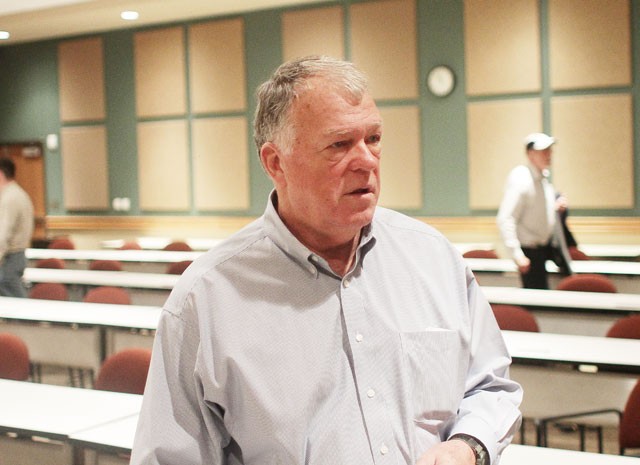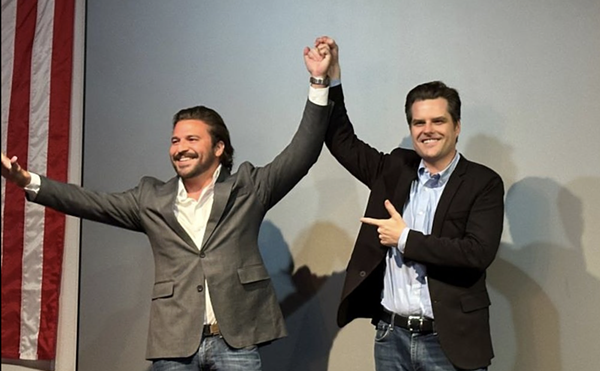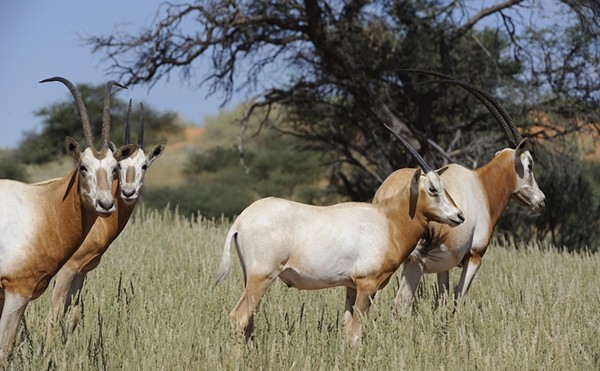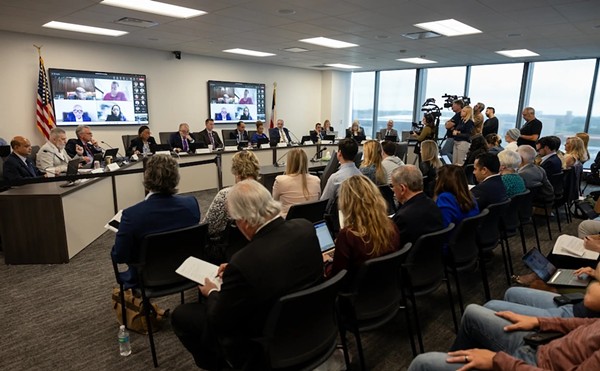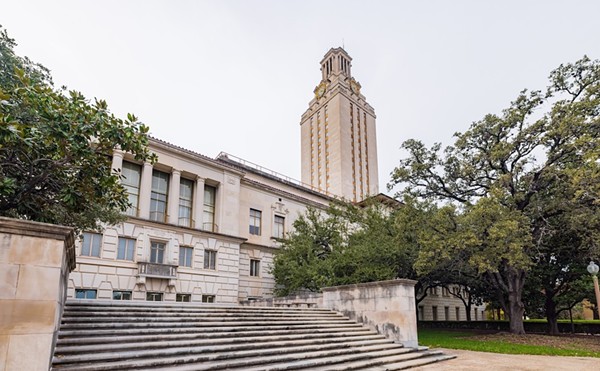Two months of sustained outrage from scientists, academics, and newspaper editorial boards may have changed things at the Texas Commission on Environmental Quality — at least when it comes to publishing hard, peer-reviewed science. John Anderson, a prominent Rice University professor who in October accused the TCEQ of censorship, says the commission has finally agreed to reinstate references to climate change and sea-level rise the agency chopped from its commissioned report on the health of Galveston Bay, findings that were all gleaned from a decade of peer-reviewed research.
Looking back at the conflict with TCEQ, there's one bright spot, Anderson said: it may have brought more attention to the issue of the Gulf's rapidly changing coast. Still, the spat did more to highlight how in Texas there's little appetite for science at the policy-making level, he said. For sea-level rise, climate change, and how to tackle changes along the Gulf Coast in the coming century, Anderson says Texas is “in a state of denial.”
Anderson also pointed to what he feels are real steps the state could take in looking at the future of the Texas coast. The General Land Office, he insisted, could take the roughly $13 million per year it spends dumping sand on coastal beaches and instead pump the money into wetlands preservation and restoration. “But as long as we have people in Austin, and a governor who denies global climate change and the Texas Commission on Environmental Quality who denies it, then we haven't even made the first step, that educational step,” he said.
Below are highlights from a talk with Anderson on Friday.
On the months-long controversy with TCEQ
“Honestly, probably relatively few people would've read [the report] without this whole mess. I think it's raised public attention. There's a lot of good people at TCEQ, at least that's my perception. I think it's unfortunate that something like this happens. I mean, [TCEQ Commissioner] Buddy Garcia, who I initially wrote to, I know Buddy, I think his heart's in the right place. I think he's a smart guy, and even at the level he's at, the commissioner level, I had that impression. But those guys don't tell me about the internal politics. I know some of Buddy's assistants, you know people who work with him at the ground level, who are smart. They care, I think. But what's important is that somewhere at the top, it seems there are these bright people who are not able to do their job, which is protecting the Texas environment. I mean, it is the Texas Commission on Environmental Quality.”
On political rhetoric surrounding sea-level rise and climate change
“If you drive up and down around the Texas coast, I think you can quickly get a feeling for the fact that our coast is changing very rapidly, and it has been changing for a long time. … There's certainly a strong suggestion that current rates of change are unprecedented. Now I think that's not terribly surprising. Those of us who keep up with the literature on sea-level change know that the rate of sea-level rise has accelerated. And, in fact, on the global scale the rate of sea level rise has increased six-fold in historical time, this century. Most of that since the 1940s.
“Whenever I'm talking to a group of people about global warming, especially to a lay audience, I say well you can debate global warming and it's a very complicated thing because climate responds to changes and atmospheric whatever — it's a very complex response. … But the oceans are really, I think, the best evidence for global warming because they just filter all that noise, and over the last several decades they've been heating up and they've been expanding. How else do we explain a six-fold increase in sea level rise over the last several decades if it's not global warming? There's really no known mechanism for changing sea-level rise that rapidly other than heating the oceans. … But as long as we have people in Austin, and a governor who denies global climate change and the Texas Commission on Environmental Quality who denies it, then we haven't even made the first step, which is the educational step.”
Where Texas stands on coastal preservation
“I think we really need to reconsider how we spend money in the name of coastal preservation. They respond to a lot of pressure from local groups who are beachfront property owners and putting truckloads of sand on the beach, for example. And I have to be very careful here. I don't wanna say they should spend that money on research, because then everyone will say, 'Oh I know what his motive is.' That's exactly what they're looking for. But I do think that money could be spent in wetlands preservation very effectively. But there are other examples of things that the state has done, where they just don't seem to seek out scientific information. Maybe that's our fault as scientists. Frankly, I don't think it is, that's why I wrote this damn chapter. So we're trying to make sure that information is available. The frustrating part is I hear from the policymakers who say, 'Well you guys aren't really forthcoming with your information.' Then you write a chapter aimed at that particular group, and there's this mess over publishing the chapter. And I wrote a book on the Texas coast, and it was aimed at the non-science community.
“I think the information is there. It just seems like the decisions that are being made by the General Land Office, by the Texas Commission on Environmental Quality, which are the two agencies that tend to get their fingers into the pie here, are being made without a lot of really good scientific input. And I think taking a look a that is one of the first things that needs to be done. The government for a while had this coastal advisory group — not one scientist among them, they were all political appointees. I went to one of those meetings, sat in the back of the room, and someone would be like, 'Well how's the banking business, Bob?' and all that kind of thing. They chatted for an hour and a half, then they went home. Nothing got done. And really, I think the science community needs to step out in front.
“We are right now at Rice and at UT talking about a scientific collaboration, sort of a consortium of scientists, Gulf Coast scientists that can issue consensus statements. We need to go big. We need to go Gulf Coast-wide. Because this is a problem that every state's having. So what we're trying to do at Rice right now, at the Sustainability Center, one of our big efforts is to bring people together, respected scientists who have been doing research — they're public, they're recognized — bring them together to try to come up with consensus statements. But also to make ourselves available as a source of information. The federal government has that. Like the National Academy, I was on their polar research board for like a year, and these people would come ask us about sea level and everything else. We were actively pursued for that information. In Texas, there seems to be no hard attempt to actually get information, yet you've got some great science going on in this state. You just don't see an appetite for it at the political level.”
Practical steps for policymakers
“I think that if you look at the Louisiana story, 50 years ago people were saying we need to do something there. We're diverting sediment from the delta, and still nobody was listening. Fifty years later people started listening and it was probably too late to do anything about the problem. The sooner you get policymakers to accept there is a problem and that it could get a lot worse in the future, then you can start doing things.
“I think along the coast the General Land Office spends $13 million a year on average putting sand on beaches with dump trucks. The next year it's gone, and then they come back out with dump trucks. You could take that $13 million a year and spend it in some better ways. You could try to reclaim more wetlands. But we don't spend that amount of money reclaiming wetlands here. We waste it on the beach. So that's one example.”
The coast of the future
Look at Follets Island, which is just west of Galveston, which is only a meter and a half thick the entire barrier and lost a half a meter of sand during Hurricane Ike. I think it's the next to go. I just don't see how that can make it through another hurricane. And so there are definitely some weak links. South Padre, another example of a narrow thin barrier that's being translated landward at a very high rate. And I think hurricanes at that level are kind of the straw that breaks the camel's back. You get a barrier thin enough, and it goes into that wash-over phase, and all it takes is one or two hurricanes to end the show. … Certainly in your lifetime you're going to see some barrier islands disappear.”

